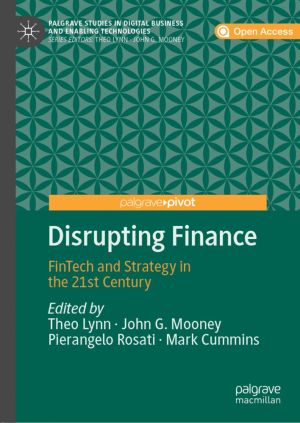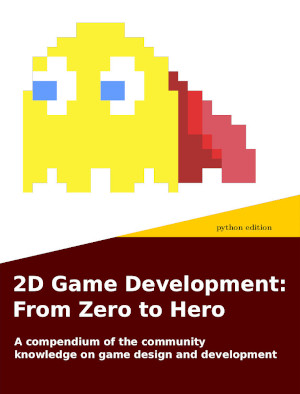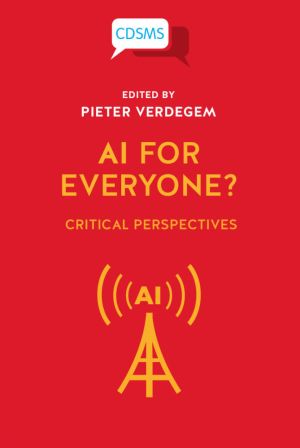AI for Everyone?
Critical Perspectives
by Pieter Verdegem
DescriptionTable of ContentsDetailsHashtagsReport an issue
The book is structured in three parts: Part 1, AI: Humans vs. Machines, presents critical perspectives on human-machine dualism. Part 2, Discourses and Myths About AI, excavates metaphors and policies to ask normative questions about what is 'desirable' AI and what conditions make this possible. Part 3, AI Power and Inequalities, discusses how the implementation of AI creates important challenges that urgently need to be addressed. Bringing together scholars from diverse disciplinary backgrounds and regional contexts, this book offers a vital intervention on one of the most hyped concepts of our times. 






Book Description
We are entering a new era of technological determinism and solutionism in which governments and business actors are seeking data-driven change, assuming that Artificial Intelligence is now inevitable and ubiquitous. But we have not even started asking the right questions, let alone developed an understanding of the consequences. Urgently needed is debate that asks and answers fundamental questions about power. This book brings together critical interrogations of what constitutes AI, its impact and its inequalities in order to offer an analysis of what it means for AI to deliver benefits for everyone.The book is structured in three parts: Part 1, AI: Humans vs. Machines, presents critical perspectives on human-machine dualism. Part 2, Discourses and Myths About AI, excavates metaphors and policies to ask normative questions about what is 'desirable' AI and what conditions make this possible. Part 3, AI Power and Inequalities, discusses how the implementation of AI creates important challenges that urgently need to be addressed. Bringing together scholars from diverse disciplinary backgrounds and regional contexts, this book offers a vital intervention on one of the most hyped concepts of our times.
This open book is licensed under a Creative Commons License (CC BY-NC-ND). You can download AI for Everyone? ebook for free in PDF format (17.2 MB).
Table of Contents
Chapter 1
Introduction: Why We Need Critical Perspectives on AI
Chapter 2
Artificial Intelligence (AI): When Humans and Machines Might Have to Coexist
Chapter 3
Digital Humanism: Epistemological, Ontological and Praxiological Foundations
Chapter 4
An Alternative Rationalisation of Creative AI by De-Familiarising Creativity: Towards an Intelligibility of Its Own Terms
Chapter 5
Post-Humanism, Mutual Aid
Chapter 6
The Language Labyrinth: Constructive Critique on the Terminology Used in the AI Discourse
Chapter 7
AI Ethics Needs Good Data
Chapter 8
The Social Reconfiguration of Artificial Intelligence: Utility and Feasibility
Chapter 9
Creating the Technological Saviour: Discourses on AI in Europe and the Legitimation of Super Capitalism
Chapter 10
AI Bugs and Failures: How and Why to Render AI-Algorithms More Human?
Chapter 11
Primed Prediction: A Critical Examination of the Consequences of Exclusion of the Ontological Now in AI Protocol
Chapter 12
Algorithmic Logic in Digital Capitalism
Chapter 13
'Not Ready for Prime Time': Biometrics and Biopolitics in the (Un)Making of California's Facial Recognition Ban
Chapter 14
Beyond Mechanical Turk: The Work of Brazilians on Global AI Platforms
Chapter 15
Towards Data Justice Unionism? A Labour Perspective on AI Governance
Book Details
Title
AI for Everyone?
Subject
Computer Science
Publisher
University of Westminster Press
Published
2021
Pages
310
Edition
1
Language
English
ISBN13
9781914386169
ISBN10
1914386167
ISBN13 Digital
9781914386138
ISBN10 Digital
1914386132
PDF Size
17.2 MB
License

Related Books

Fifty years have passed since the first Earth Day, on 22 April 1970. This accessible, incisive and timely collection of essays brings together a diverse set of expert voices to examine how the Earth's environment has changed over this past half century, and what lies in store for our planet over the coming fifty years.
Earth 2020: An Inside...

This book presents the diagnosis, investigation and treatment of neurovascular diseases, and offers expert opinions and advice on avoiding complications in neurovascular surgery. It also covers complication management and post-operative follow-up care. The book is divided in to three parts; the first part discusses common approaches in neurovascula...

This open access Pivot demonstrates how a variety of technologies act as innovation catalysts within the banking and financial services sector. Traditional banks and financial services are under increasing competition from global IT companies such as Google, Apple, Amazon and PayPal whilst facing pressure from investors to reduce costs, increase ag...

Ionic 4 takes the original Ionic toolkit from a mobile-centric framework based on Angular to a powerful, web-based UI design system and app-development toolset that is JavaScript-framework agnostic. The increased performance of Ionic 4 components makes the framework ideal for developing progressive web apps (PWAs), which are in high demand and popu...

This is a small project that aims to gather some knowledge about game development and make it available to everyone.
As well as being a source of knowledge this project aims to be a learning experience for everyone involved too, by gathering contributions from the community, teaching others how to make a game, teaching algorithms but also learni...

Field programmable gate arrays (FPGAs) are integrated circuits that enable designers to program customized digital logic in the field. FPGAs have been around since the 1980s and were originally conceived to give all design teams the ability to create custom logic. In the early days, using an FPGA in your design meant you had to do a lot of programm...

